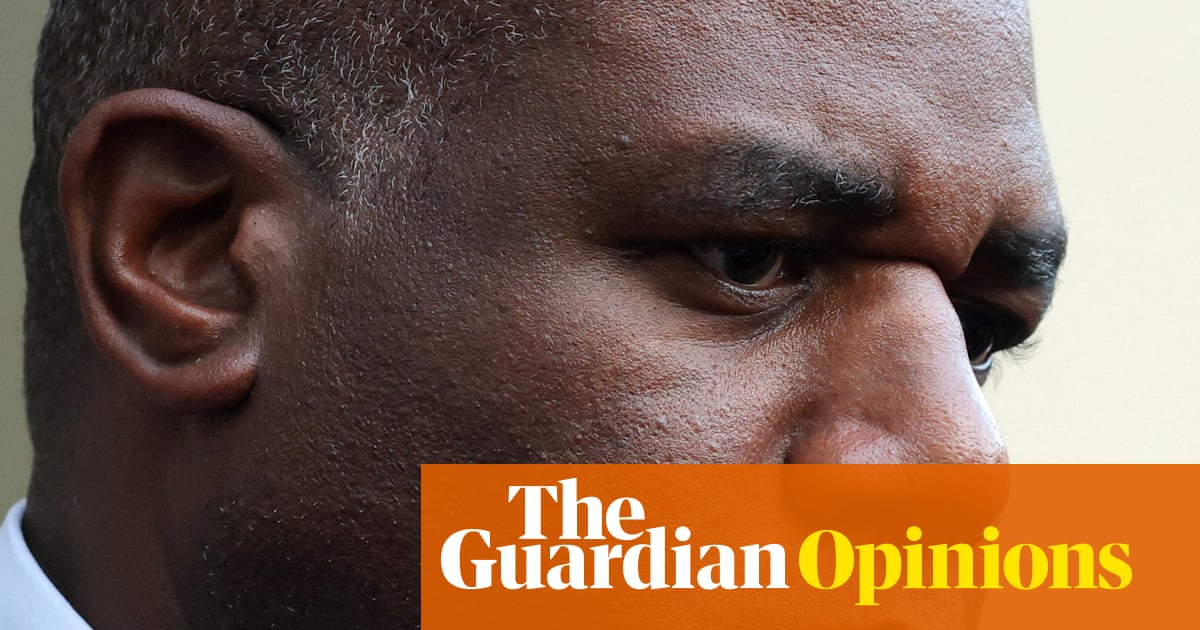‘Alexlilly1999* has left you feedback!” pings the Vinted notification. My stomach flips as the app loads and I open my review: “Quite good.” A gut punch. I sit in shock, scrutinising the words in front of me. “Good” is a bit uninspired but “quite” feels both passive-aggressive and viciously spiteful: quite good. Alexlilly1999 has also given me just four stars. It’s a lukewarm write-up considering the dress I sold them was good quality, a brilliant price and shipped quickly. I glare at the review. And then another notification pops up: do I want to leave feedback for the buyer? Well, yes, actually, I do.
It’s likely we’ve all, at some stage, been asked to leave feedback online. Called your electricity provider with a query? Please answer a few quick questions about the service you received. Had something delivered by a courier? Please rate your experience. Often, the promise of prizes – from £200 worth of high street vouchers, to spa trips and luxury hampers – is dangled in exchange for our appraisals. We’re asked to judge the people who serve us coffee; drive us in taxis; cut our hair; extract our teeth. A friend of a friend was recently asked to leave feedback for an interview process just moments after the company had rejected them for the role.
The odd thing is, lots of us do leave feedback. Perhaps it has become normalised to mark, out of five, the toilet plunger we bought at 2am – or perhaps we’ve been influenced by “influencer culture”, in which everyone can (and does) have an opinion. Lots of us also, of course, like getting feedback, with positive ratings on platforms like Uber, Airbnb and Vinted becoming badges of honour.

According to a study by Power Reviews, 98% of consumers see reviews as an essential part of the decision-making process and 45% of users won’t buy a product if there aren’t any reviews. Ratings, it seems, have become so ubiquitous that an absence of them is an automatic red flag.
But while, on the face of it, authentic, real-world information about goods and services may seem helpful – necessary, even – one can’t help but wonder what this culture of mutual surveillance is doing to our brains – and our lives. If every decision is judged, often publicly, how long before it starts to change the way we interact?
For Helen Plyconic, it already has. The 45-year-old has a 4.12 (out of 5) rating on Uber – a ranking so low it can, reportedly, mean some Uber drivers refuse to pick you up (although the company itself says destination and fare are more likely to drive a driver’s decision to turn down a booking). The Walthamstow resident, who says she has never been rude or drunk in an Uber, believes her rating is low because she once missed a taxi when her phone ran out of battery after booking, and she jumped in a friend’s cab instead. While she concedes this was her fault, she has, since then, received consistently low ratings for reasons, she thinks, such as needing help with her bags (she had three children with her) and a driver having to change a pickup point due to closed roads. As a result, she has begun to alter her behaviour, tipping extra-generously and even explaining her predicament to drivers, all to no avail.
A self-confessed people pleaser, Plyconic now feels anxious each time she takes an Uber. “Do I chat to show I’m friendly or be silent so as not to upset them?” she says. She describes, too, how drivers even tell her how lucky she is they picked her up, given her poor rating. “I then question why they did, and wonder if they are dodgy themselves.” (Riders, incidentally, can check their drivers’ ratings, meaning Plyconic could, if she wanted, refuse a driver if she deemed their rating too low. She would, however, incur a £5 cancellation fee.)
Anxiety specialist Vic Paterson – who, when we speak, is considering how best to review her dog walker – says she has noticed her clients struggling with this constant feedback culture. “While specific research on ubiquitous rating systems is still developing, therapists and psychologists – including me – are noticing recurring patterns,” she says. “Many clients [experience] increased self-consciousness during everyday interactions that may be rated.” Paterson suggests that, although the rise of online reviews and ratings “gives opportunities to those who might otherwise not speak up”, the endless and sometimes seemingly needless requests for feedback are changing how people interact, on both sides of the transaction.
“Now, I’m greeted cheerily by name when I collect a coffee – not always what I want – because the server is concerned about how I might rate them, which forces me into an interaction,” she says. “The delivery driver could be having a horrible day and just want to get stuff done, but if I want to have a quick chat, they’re forced to spend some time in case I rate them poorly. I have no way to tell whether their cheery chat is authentic or based around their need for a five-star review,” she says. “When everyday encounters become potential evaluations, it may change how freely we express ourselves.” From a psychological perspective, Paterson says, there is reason for “thoughtful concern about constantly outsourcing evaluation of our performance to others” – especially if those “others” may have their own agenda.
Last year, 42-year-old Sam Morgan, who owns and runs eight restaurants across the north-west, the Midlands and north Wales, was blackmailed by fraudsters threatening to post fake one-star reviews across the restaurants’ online platforms unless the company sent them £2,000. When Morgan and his business partner, chef Andy Sheridan, didn’t comply, the extortionists began to post negative reviews on Google and Tripadvisor, claiming the wine list was “overpriced” and even that the restaurant itself was a “scam”.
Although Morgan, who used to work in law enforcement before moving into the hospitality industry, describes the experience as “a challenging time” that took its toll, he says their restaurants are still, in a way, being held to ransom – but by customers. “The fraudster, that was at the most extreme end,” he says. “But this is an everyday occurrence in respect of members of the public leaving what we would call over-embellished reviews, fake reviews, threatening to leave these reviews if they don’t get their way.” This, he says, is the bigger problem.
Morgan has short shrift, too, for the review platforms themselves, saying it was only once his team had gone to the press that they acted. “They [Google and Tripadvisor] weren’t interested in dealing with it,” he says. “They don’t do any checks.” Neither Tripadvisor nor Google responded to a request for comment but, previously, a spokesperson for Google told the BBC: “Our policies clearly state that reviews must be based on real experiences and information. We’ve looked into this case and are removing the policy-violating content.”

Perhaps Morgan should take a leaf out of restaurateur Chris D’Sylva’s book. The owner of Dorian in Notting Hill – supposedly David Beckham’s favourite restaurant – reviews diners using a behind-the-scenes system to record their behaviour and rank them accordingly. But, although Morgan reveals they have banned guests before, he says he wouldn’t introduce a similar system. “Ranking or scoring is a little extreme and, to be honest, would be hypocritical of me when I don’t like the purpose of review sites,” he says. “I do, however, wonder how guests would feel if we created a ‘GuestAdvisor’ and [reviewed] their behaviour online.”
Quite apart from the looming sense that we’re under constant observation, the very act of leaving feedback also takes time – something many of us feel we don’t have. “I’ve just stopped giving feedback now,” says 38-year-old Daisy Ferns, a business owner from Derby. In the last few days, she tells me, she has been asked to leave a review for a hotel stay, a vitamin purchase, something she bought from Boots, an Uber trip, a courier delivery and a returns process. “I don’t mind a tick box thing but it’s a lot of brain power to think of comments.” She worries, though, that if she doesn’t engage, it will reflect badly on her. “If I don’t rate them, will they not rate me or rate me badly?”
As fed up with feedback as we may be, it is pertinent to remember that some people – small businesses, especially – live and die by their reviews. And reviews can still have their uses. I devour online reviews of clothing, for example, before making a purchase, picking apart customers’ thoughts on style, fabric, and – especially useful given how different sizing is across brands – fit. Paterson agrees this is one of the benefits: public feedback is a “form of social proof” that reduces anxiety around unknown experiences, whether you’re worried about the cleanliness of an Airbnb or the sizing of a River Island skirt.
However, it’s worth questioning the authenticity of some reviews. The rise of fraudulent feedback has become so prolific that new laws under the Digital Markets and Competition and Consumer Act, coming in on 6 April, include the banning of submitting and commissioning fake reviews. Helen Dewdney, the Complaining Cow consumer expert, says AI reviews, in particular, are often easy to spot: “They are bland, lacking in emotion or feeling and appear to have no strong opinion about the subject of the review.”
Constructive feedback can also drive improvements. Certainly, the buyer on Vinted who flagged, politely, that my packaging hadn’t been sufficiently sturdy made me rethink how I was sending out my items. And there will always be people, as well, who go the extra mile in search of praise, such as the seller who sent extra treats – some wax melts – for me in my parcel (along with a note reminding me to confirm delivery and leave a review). This particular seller had five-star reviews across the board, glowing write-ups and – I noted with interest – repeat custom, so her approach is clearly working.
The more we are canvassed for online feedback, the less value it may come to hold. Paterson believes that “unsolicited feedback is generally seen as more genuine because it wasn’t prompted”, adding that readers tend to give this feedback more weight, too.
As I finish my drink in a cafe, I notice a card on the table in front of me: a QR code requesting feedback on my experience. Instead, I approach the till and, taking a deep breath, thank the barista for my coffee, for the pleasant space and for their hard work. He is taken aback. “You’re welcome,” he beams. “We put a lot of effort in, so it’s nice when it’s noticed and people say.”
* This name has been changed

 2 months ago
45
2 months ago
45

















































